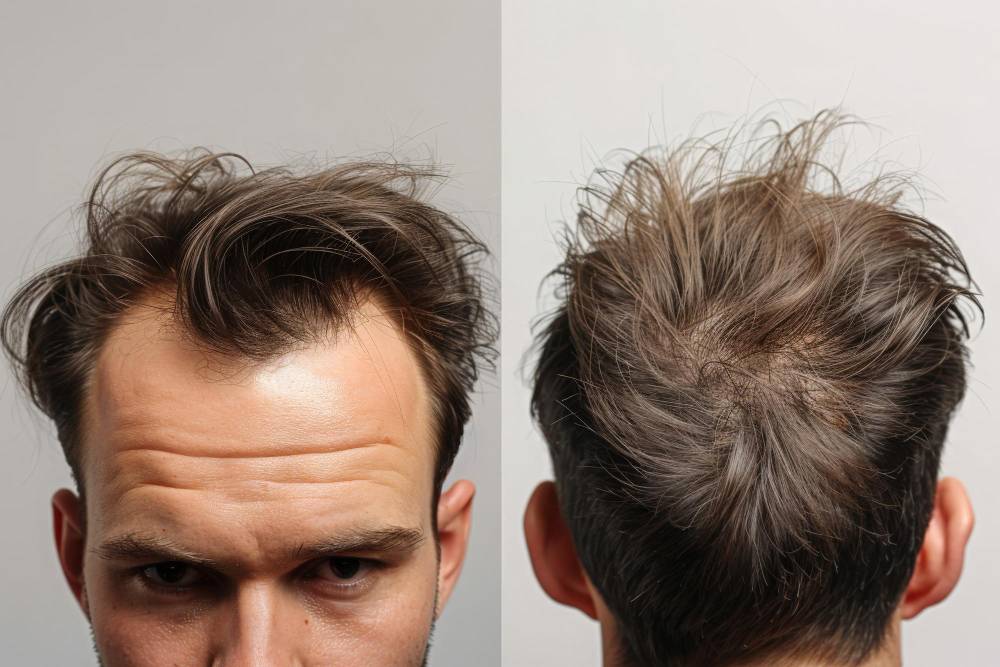

Hair loss is a problem that affects many people at some point in their lives. While genetics plays a significant role, it’s not the only factor at play. Stress, hormonal imbalances, nutrition, and even styling habits can contribute to thinning.
Luckily, there are plenty of proactive steps you can take to help prevent hair loss and keep your mane looking its best. In this brief article brought to you by The Wellness Restoration Center, we share some tips for hair loss management.
We also offer our own hair restoration services, so call or message The Wellness Restoration Center to learn more. Our team is always happy to address questions or concerns.
Your hair needs proper nutrition to thrive. A diet rich in vitamins and minerals like zinc, biotin, and iron can significantly benefit your hair health. Incorporate foods such as leafy greens, nuts, seeds, fish, and lean meats into your meals to promote hair growth and strengthen existing strands.
Believe it or not, water is essential for even hair health. This is because dehydration can lead to dry, brittle hair, making it more prone to breakage and loss. Aim for at least eight glasses of water a day to keep your body hair hydrated. If you’re active or live in a hot climate, you might need even more.
Schedule your appointment with Dr. Marcia A. Harris, MD today to find out more about these life-changing modalities. Don’t let ED rule your LIFE! Call for an appointment today!
BOOK AN APPOINTMENTStress is a well-known trigger for hair loss. When your body is under stress, it can lead to a condition called telogen effluvium. This is where hair follicles enter a resting phase and fall out. Incorporating yoga, meditation, or regular exercise into your routine can help keep stress levels in check.
As tempting as they are, frequent coloring, perming, and heat styling can wreak havoc on your hair. We’re not saying avoid it altogether but try to limit the use of these treatments and opt for gentler alternatives. If you do style your hair, then consider using heat protectants and lower heat settings to minimize damage.
How you treat your hair daily can also make a significant difference. When washing, use lukewarm water and a gentle shampoo. Massage your scalp to improve circulation. After washing, avoid aggressive towel drying; instead, pat your hair dry to reduce breakage.
Scalp massages not only feel good but can also stimulate blood flow to hair follicles and encourage growth. You can do this yourself or schedule a professional massage. Incorporating essential oils like rosemary or peppermint oil can also help.
Hormones play a silent but large role in hair health. Testosterone, for instance, can contribute to hair thinning. Moreover, fluctuations in hormones during puberty, pregnancy, menopause, or andropause can lead to hair loss. This is where bio-identical hormone replacement (BHRT) can help.
By restoring hormonal balance, BHRT can potentially improve hair health, promote regrowth, and prevent further loss. This approach is particularly beneficial for women experiencing menopause, as decreasing estrogen levels is also known to lead to thinning hair.
Have questions or concerns? Contact The Wellness Restoration Center to consult with a care professional. Our team is ready to take your call or message today.
A question many medical professionals often get asked is: Are…
There are some things we often don’t talk about, and…
Type 2 diabetes is a chronic…
In this collection of heartfelt testimonials, patients of The Wellness Restoration Center share their personal stories of transformation and healing.